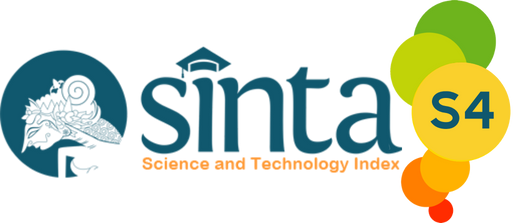TINDAK TUTUR PERMINTAAN DALAM ANIME BOKU NO HERO ACADEMIA SEASON 1 KARYA KOHEI HORIKOSHI
Kata Kunci:
Requestive Speech Act, Context, Strategies, Functions, AnimeAbstrak
Requestive speech acts are actions and utterances aimed at asking the interlocutor to do something. Requestive speech acts can sometimes be expressed directly or indirectly, which can lead to misunderstandings between the speaker and the interlocutor. This research aims to identify the context, strategies, and functions of requestive speech acts to prevent misunderstandings between the speaker and the interlocutor. This type of research is qualitative, using descriptive methods. The data used in this study are requestive speech acts. The data source is the anime Boku no Hero Academia Season 1. In this study, 25 data points were found that utilized different strategies and functions, detailed as follows: 12 imperative strategies with an impositive function, 7 imperative strategies with functions different from impositive, 1 strategy for expressing needs and desires with a face-threatening act function, 3 advising strategies with a face-threatening act function, 1 signaling strategy with an impositive function, and 1 strategy for asking the interlocutor's willingness with a face-threatening act function, based on linguistic context, social context, and situational context. The strategies for requestive speech acts that were not found in this study are the performative strategy and the obligation strategy. Additionally, factors influencing the emergence of requestive speech act strategies are based on linguistic context, social context, and situational context, which are not always bound by strict language rules due to the bond or closeness between the speaker and the interlocutor.Referensi
Akhmad, Saifudin. (2019). “Teori Tindak Tutur Dalam Studi Linguistik Pragmatik.” Lite Jurnal Bahasa, Sastra, dan Budaya 15(3):1–16.
Andari,dkk. (2018). “Analisis Tindak Tutur Permintaan Pada Drama Rich Man Poor Woman.” Jurnal Pendidikan Bahasa Jepang Undiksha 4(3):260.
Andini, Wike Yesa & Meira Anggia Putri. (2022). Tindak Tutur Komisif dalam Anime Hotaru No Haka Karya Isao Takahata. Skripsi.padang:Universitas Negeri Padang.
Cahyani, Septa Wiki Dwi. (2015). Analisis Tindak Tutur Ilokusi Dalam Bahasa Jepang. Skripsi. Semarang:Universitas Negeri Semarang.
Kurniawan, Gamis. (2021). Analisis Penggunaan Kandoushi Outou dalam Komik Naruto Volume 1 . Skripsi. Padang: Universitas Negeri Padang.
Mursal, Rahul Ardian. (2023). Tindak Tutur Introgatif Bahasa Jepang dalam Anime Death Note karya Tsugumi Ohba. Skripsi. Padang: Universitas Negeri Padang.
Prakoso, Bima Mugi. (2020). Tindak Tutur Direktif Perintah dan Permintaan dalam Novel Bahasa Jepang (Kajian Pragmatik). Skripsi. Semarang: Universitas Diponegoro.
Sidiq, Umar. (2019). Metode Penelitian Kualitatif di Bidang Pendidikan. Ponorogo: CV.Nata Karya.
Sugiyono. (2016). Metode Penelitian Kuantitati, Kualitatif, dan R&D. Bandung: Humaniora Utama Press.
Sugiyono. (2016). Metode Penelitian Pendidikan. Bandung. :CV Alfabeta.
Tuti Hidayah,dkk. (2020). “Analisis Tindak Tutur Lokusi, Ilokusi, dan Perlokusi Pada Film “Papa Maafin Ris".” Jurnal Pendidikan Bahasa Dan Satra Indonesia 3 Nomor 1:71–80.
Zalman, Hendri. "Peran Penyelenggara Program Bahasa dan Budaya Jepang dalam Menyonsong Abad 21." (2015): 28-36.








